Nowadays, everything in science communication points towards dialogue: in October 2021 the German Science and Humanities Council published a position paper on science communication in which the term “dialogue” appeared 37 times. “Dialogue orientation” is considered an important part of successful scientific communication. Formats that are designed for exchange, rather than those merely relaying facts, are considered to be particularly valuable. But how do you enter into a dialogue? How does one achieve an exchange when there is a knowledge gap between the experts (= scientists) and “the outside world”? After all, dialogue requires a level playing field.
We believe that this gap can be closed and aim to create the right conditions for dialogue. That’s why we collaborate. We combine well-researched machine learning knowledge with the expertise and ingenuity of experienced online media creators. We want to stimulate an informed discourse about machine learning and artificial intelligence and recognize that scientists alone are not up to the task. Public discourse functions differently from discourse within the scientific community. In the truest sense of the word, it is a medial form of discourse, one that lies ‘in between’ the technical details that scientific research deals with and the overarching societal concerns and issues that need to be addressed.
How can this “in-between” be shaped into a lively and competent forum? How can we inform people in our democracy so they are savvy enough in the relevant scientific issues to be able to form their own well-founded judgements? How can all this happen in an atmosphere of mutual respect, especially when things get controversial and views diverge?
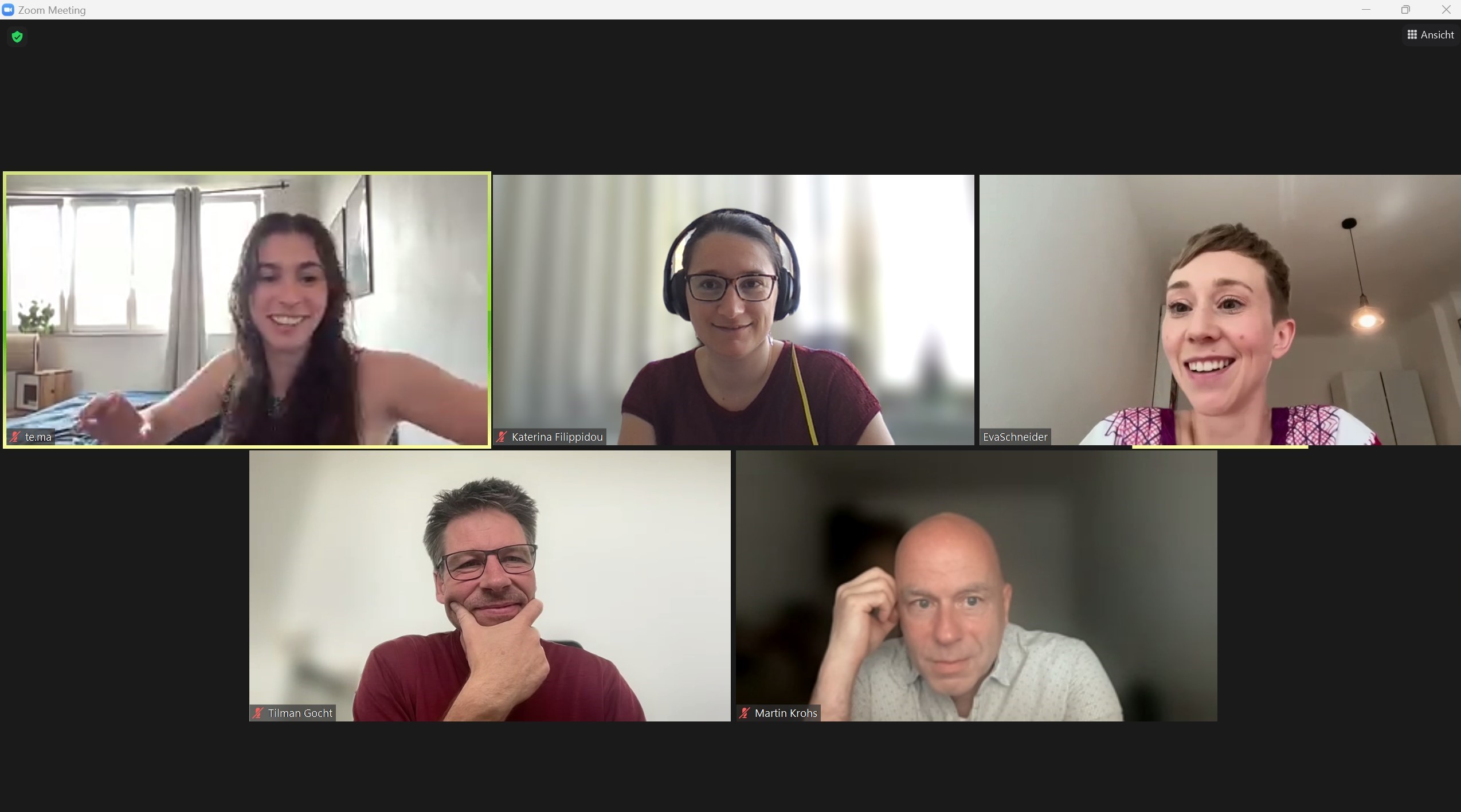
JourFixe via Zoom: Adelina Olbrich, Katerina Filippidou, Eva Grafenstein, Tilman Gocht, Martin Krohs (from left to right)
Cooperation in the Text Laboratory
Everyone involved in the interaction of science, society and politics is confronted by such questions. Our themed channel “AI and Sustainability” relies on cooperation right from the start: both partners must make an investment by relinquishing individual control and collaborating on content.
The channel’s curator team features three junior researchers of the Cluster of Excellence “Machine Learning”: Matthias Karlbauer, Solveig Klepper, and Jan Lause. They design the program for the themed channel, and, together with a specialised editor from te.ma, Eva Grafenstein, run a proper “text laboratory”. This laboratory produces texts in a variety of categories. Some of them introduce the users to classic research literature, like essays and books. But we also produce our own online formats such as blog posts, online talks and interviews. The content is produced and presented to the public in a compact and accessible format. Other researchers in the AI field appear regularly as guests and are invited to introduce their work.
Gradually, a pool of reliable expert resources is emerging, open to everyone for research and their own participation in the debate: from interested online readers to journalists and content creators, decision makers and influencers, as well as researchers, some of whom might come from other disciplines outside of artificial intelligence and machine learning.
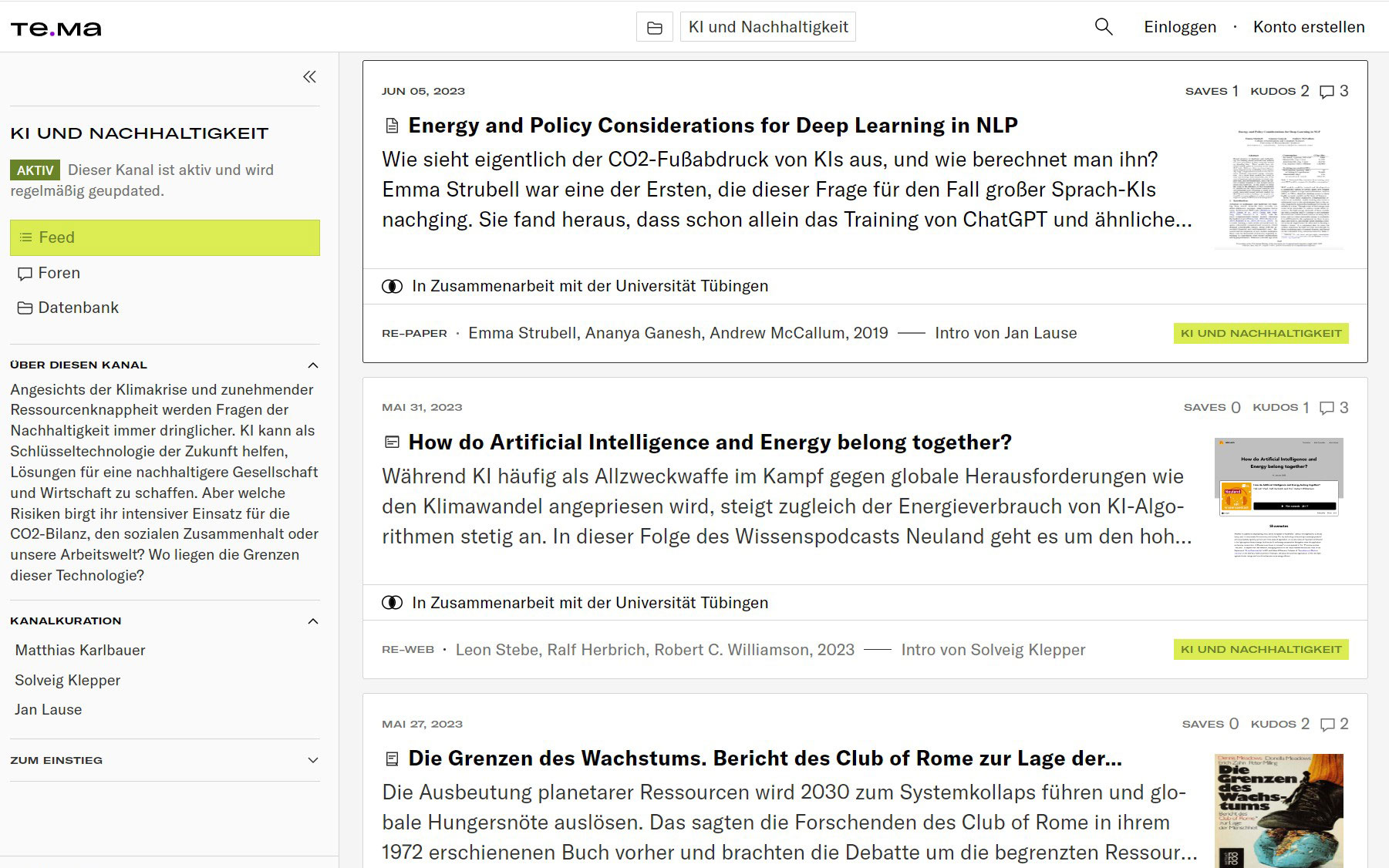
On te.ma, there are media of various kinds: whether it is classic research literature such as monographies and papers or web formats like blog articles or interviews.
The te.ma-Theme “AI and Sustainability”
“AI and Sustainability” is one of currently four themed channels on te.ma, which presents the most important contributions of the respective expert discourses alongside a forum to discuss important social issues of the day. The other channels on te.ma focus on multilingualism, on the war in Ukraine and its effects on Europe and the global order, and on questions surrounding digital media.
The content-related approach aims to place the specialised knowledge of the Cluster of Excellence in a social context where it can have a direct impact. We thus orient the topic of machine learning and artificial intelligence (ML/AI) from the outset to a concrete issue, namely sustainability, perhaps the most momentous theme of our era. It is clear that we currently find ourselves in the midst of a sustainability crisis that threatens the ability of future generations to thrive. So, we ask: How can we use science successfully to make our social lives more sustainable? What is the role of machine learning and artificial intelligence in that process, and what are the risks? What tools can AI contribute to ensure sustainability in areas such as ecology and energy, but also in social terms?
The channel will evolve around issues raised by these questions. We don’t just want to promote a naïve belief in technological solutions. We also highlight negative aspects of technological applications – for example discriminatory algorithms or the use of ML/AI in surveillance. We seek to create dialogue around all of these topics as well.
What kind of content does the channel “AI and Sustainability” offer? The three curators Jan Lause, Matthias Karlbauer and Solveig Klepper give an insight in this video.
Win-Win-Win – and Win?
New content will appear in the “AI and Sustainability” themed channel until October 2023. The advantages of this collaboration will be felt by:
• The public, who will have immediate access to carefully curated scientific expertise;
• The Cluster of Excellence “Machine Learning”, which can extend its communication to the interested public;
• The non-profit platform te.ma, which can enhance its coverage of a highly relevant topic;
• Junior scientists, who can use the platform to further practice their science communication skills.
All texts on the platform offer entry points for discussion with interested members of the public, accompanied by input from the three junior scientists. Such exchange is not just about the research itself, but also about the consequences of such research on society. And such discussions can often be controversial: The social media-like infrastructure provided by te.ma fosters debate without the usual bickering and fighting for dominance normally associated with such networks.
To a certain extent, the scientists of the Cluster of Excellence receive professional media coaching by working with te.ma: practical training in science communication. At the same time, they create an opportunity for channel users to immerse themselves directly in research. Over time, followers of the “AI and Sustainability” channel can become proper citizen scholars, taking on a significant role in discussions and making responsible decisions. This would be the ideal outcome and is something we are striving for with this collaboration. It would be the biggest and most difficult “win” we could achieve with this project.
Judging by the current use of the comment function on the platform, we still have a long way to go. Currently, most discussions about scientific issues take place in the comments section of newspaper websites or YouTube videos, or on social media platforms such as X (formerly Twitter) and Facebook. One of the biggest challenges for scientists who want to engage in dialogue-based science communication is to move these discussions to a platform actively designed by scientists themselves. Nobody has found the perfect solution yet. So, our project is also a bit of a gamble: we offer high-quality content and a welcoming atmosphere, and count on our user’s curiosity and willingness to experiment. Anyone interested in science should, we think, be well equipped with both!
Translation to English: Fortuna Communication
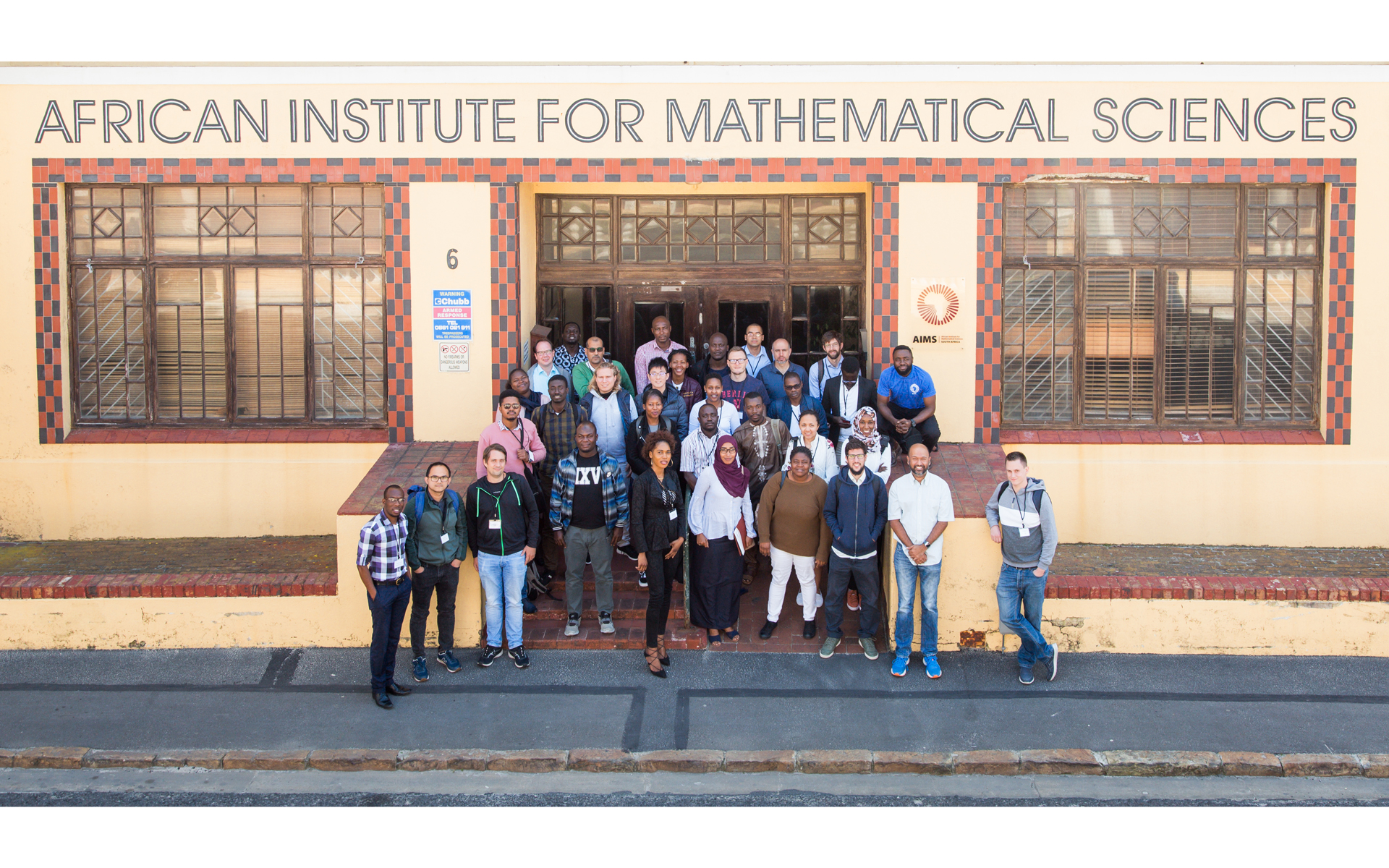
Developing Data Science and Machine Learning in Africa
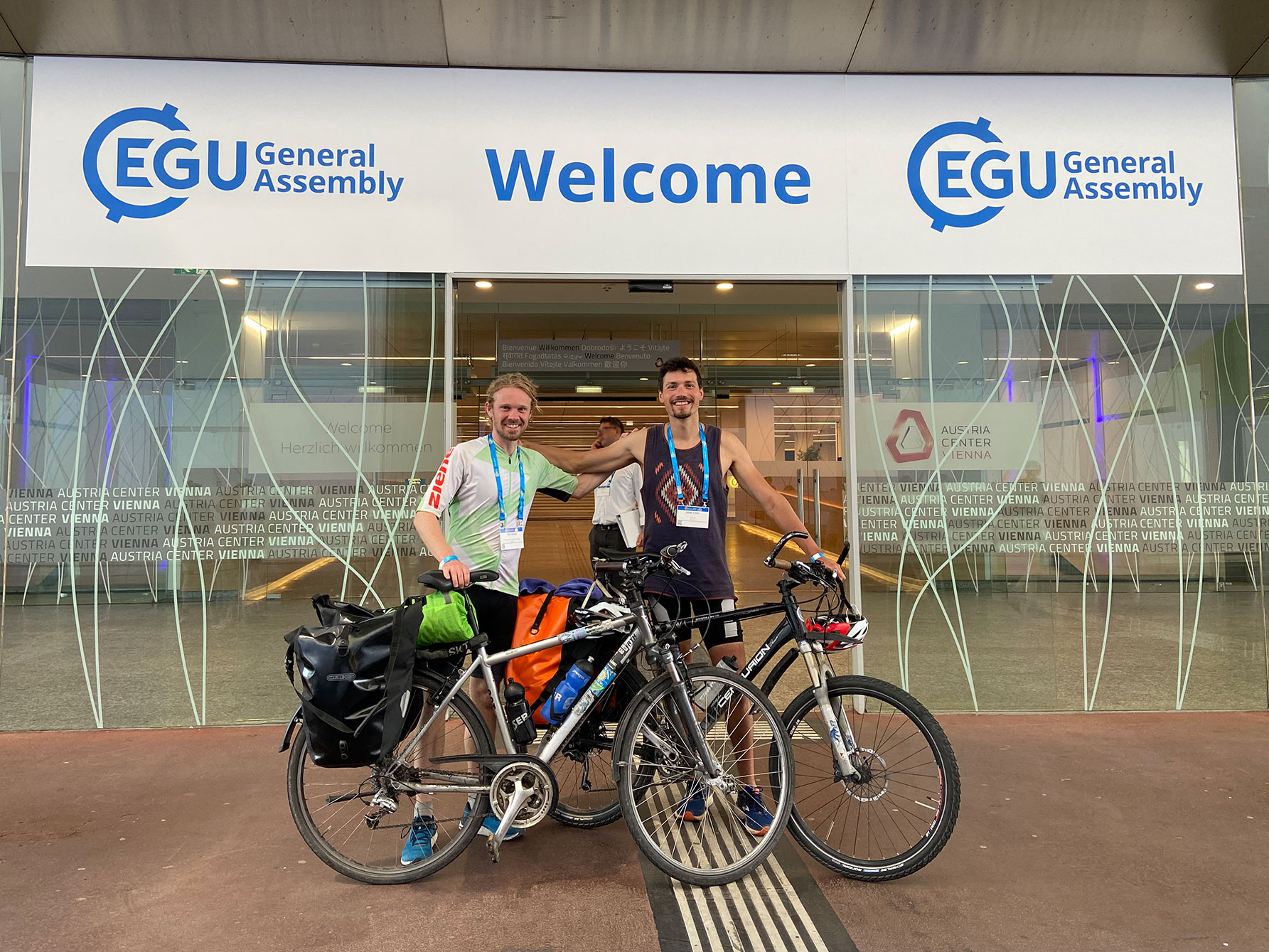
How to make business trips more climate friendly
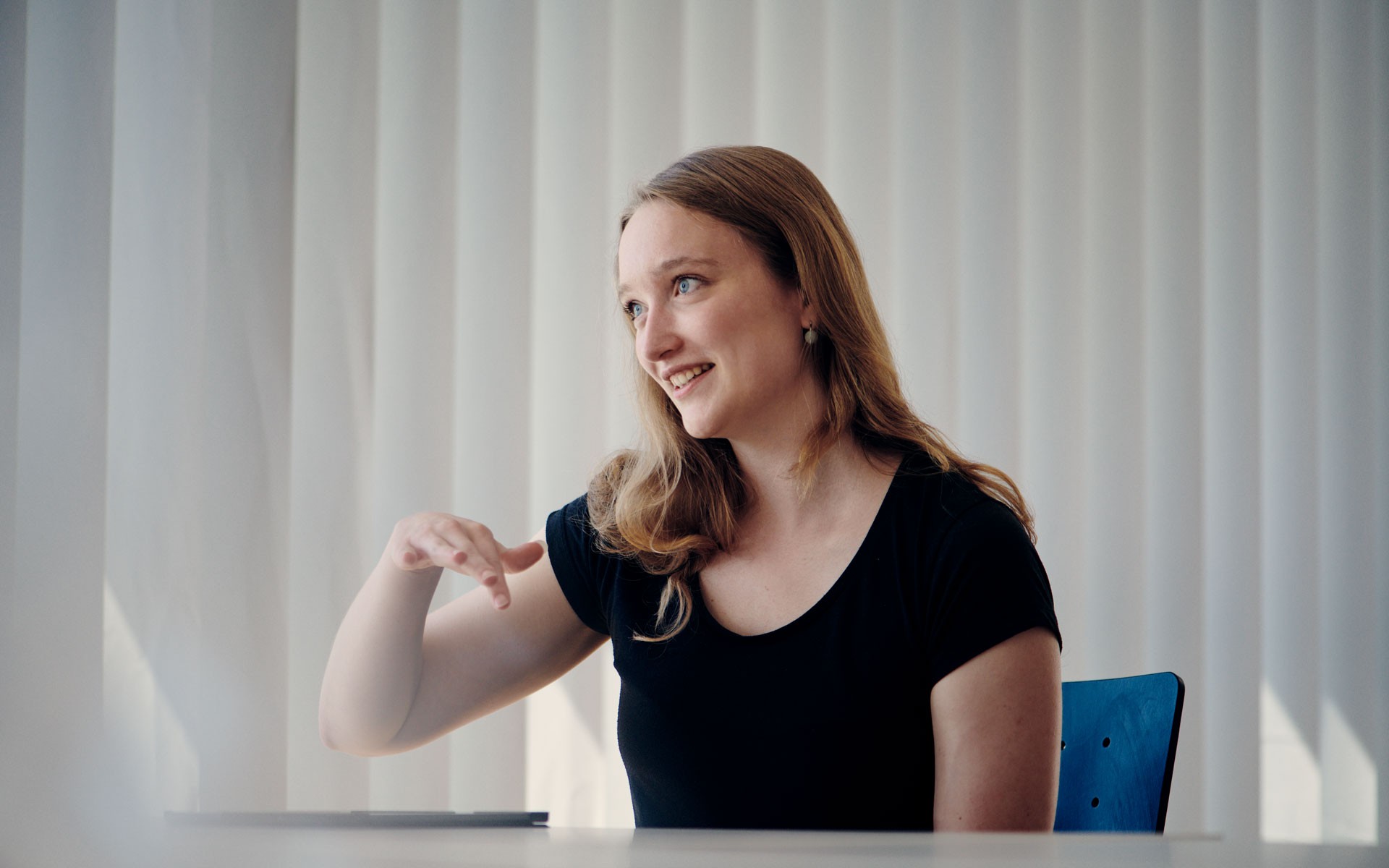

Comments